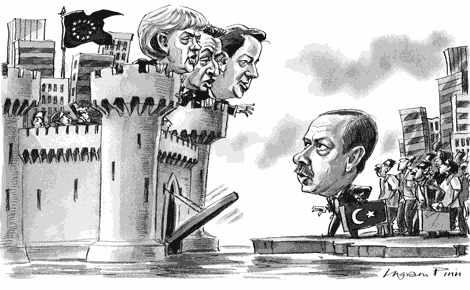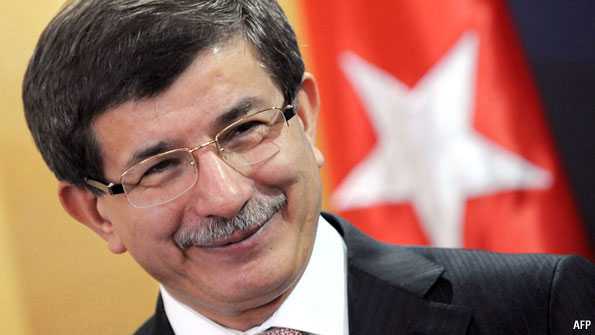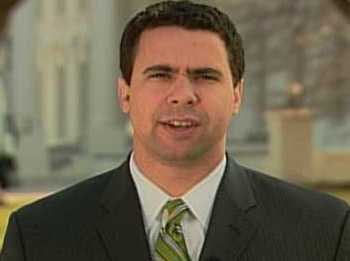Publication: Terrorism Monitor Volume: 8 Issue: 33August 19, 2010 04:49 Featured By: Wladimir van Wilgenburg Rezan Javid, PJAK Coordinator
The rising tension and provocative rhetoric surrounding Iran’s alleged pursuit of nuclear weapons are a matter of public record. Yet, are there other agendas being played out amidst the larger confrontation between Iran and the West? One such agenda may be found in the mountainous border region between Iran and the Kurdish region of northern Iraq, home to camps of the Partiya Jiyana Azad a Kurdistane (PJAK – Party of Free Life of Iranian Kurdistan), a Kurdish militant nationalist group that claims to be fighting for the “democratic autonomy” of the Kurdish community in northwestern Iran. The movement has been engaged in a low-level insurgency in the border region since 2006. Recently, there have been signs that the larger Partiya Karkeren Kurdistan (PKK – Kurdistan Workers’ Party) is using its junior partner PJAK to isolate Turkey by pushing Ankara into an alliance with Iran, which would strengthen the PKK’s position vis-à-vis both Turkey and Iran and would result in weakened relations between Turkey and its Western allies.
PJAK is part of the Koma Civaken Kurdistan (KCK – Kurdistan Democratic Confederation) headed by PKK General Murat Karayilan and is generally considered to be an integral part of its umbrella organization. The movement admits it has relations with the PKK and recognizes imprisoned PKK leader Abdullah Ocalan as its own supreme leader (Rudaw.net, July 19). [1] According to the U.S. Treasury Department, PJAK is controlled by the PKK and has Turkish Kurds in its ranks. [2]
Currently, Iranian artillery shells the border regions of northern Iraq’s Kurdistan Regional Government (KRG) to pressure the KRG to take action against the PKK/PJAK and to convince them to support Iranian-supported Shi’a parties in Iraq, according to local journalist Kamal Chomani. [3] Another source suggests that Iran is using PJAK and PKK to militarize the border regions in case of an American attack. Iran fears the United States could use the Iraqi Kurdistan region as a launching pad against Iran. [4] Despite this, the KRG does not carry out operations against PJAK and tries to limit media access and attention to PJAK by sealing off PJAK-controlled regions.
The KRG sees PJAK as an internal Iranian problem and considers the Iranian bombardments interference in Iraqi affairs. Iran and the KRG prefer to maintain economic relations, but the KRG also wants to maintain a strategic relationship with the United States to give it leverage with Turkey and its Arab partners in Iraq. Officially, the KRG is against the presence of PJAK in its administrative territory and favors a diplomatic solution. According to KRG Foreign Minister Fallah Mustafa Bakir, “We don’t believe violence can solve this problem. We do not allow any groups to launch attacks.” [5]
PJAK’s armed activities against Iran have made it the main Kurdish opposition party among Iranian Kurds. Other Kurdish Iranian parties are allegedly financed by the KRG and their camps are tolerated in the Kurdistan region. In exchange for this, these actors do not carry out attacks against Iran in order to prevent any damage to the KRG’s relations with that country. Furthermore, the main Iranian Kurdish parties and rivals to PJAK, the left-wing Komala Party and the Partiya Demokrata Kurdistan (PDK – Kurdistan Democratic Party), are both weakened and splintered after being defeated militarily by Iran.
PJAK is attracting international attention and support from Kurdish youth through its armed actions and assassinations in Iran. A Kurdish political rival of PJAK confirmed that the armed struggle is making PJAK more popular among the young Kurdish population. Other sources indicate PJAK is making some inroads among Kurdish students in Tehran. [6] PJAK leader Hadji Amedi is a former member of the Partiya Demokrata Kurdistan – Iran (PDK-I) and according to journalist Hawar Bayzan, 40% of the Kurds executed in Iran were PJAK-members. [7] This shows the growing influence of PJAK among Iran’s Kurdish community.
Iran perceives PJAK as a minor threat and has tried to increase cooperation with Turkey against the PKK and its partners since 2004 (southasiaanalysis.org, August 3, 2004). Despite this, the Iranian consul in Erbil claims that the presence of PJAK is a “small issue.” While PJAK can kill a few soldiers, it cannot destabilize Iran or hurt relations between Iran and the Kurdistan region, according to the consul. [8] It indeed appears that Iran is robust enough to deal with internal enemies like PJAK, the Mujahideen-e-Khalq (MeK) and the opposition Green movement, while increasing trade with the KRG. Apart from Iranian pressure, PJAK’s activities have been hurt by the U.S. designation of the movement as a terrorist organization. PJAK’s leader claimed negotiations to form a united Iranian opposition failed after the United States took measures against PJAK (Newsmax.com, November 24, 2009). According to PJAK Coordinator Rezan Javid, the movement is very positive about Iran’s new Green opposition movement. [9]
Therefore, PJAK is trying to gain American support or induce America to stop cooperating with Turkey against PJAK/PKK. “My party hopes that in the future the United States changes its policies towards PJAK and Iran. We are not against the United States,” the PJAK-coordinator said, citing similar democratic goals in the Middle East. [10]
A former PJAK commander, Mamand Rozhe, told an American daily in 2008 that the PKK wanted to have a relationship with the United States and formed PJAK as a means of attracting American support (Los Angeles Times, April 15, 2008). Now there are indications that PJAK/PKK is trying to lure Turkey into cooperating with Iran against a common cause (PJAK/PKK) to create tension between Turkey and the Western powers and Israel. For instance, both PJAK and the PKK welcomed recent tensions between Turkey and Israel. According to Javid, this stopped intelligence sharing between Israel and Turkey against the PKK. “Israel gave intelligence to Turkey, but after the flotilla crisis Israel stopped giving intelligence to the Turkish regime,” he stated. [11]
The pro-PKK news agency Firatnews.com concluded after the fifth PJAK Congress that Turkey has to make a choice between Iran or the United States and that this would ultimately benefit the PKK (ANF, May 11). If Turkey chooses the United States, Iran could again resort to covertly supporting the PKK against Turkey. However, if Turkey chooses Iran, this opens the door for the PKK and PJAK to receive indirect Western backing and the removal of its terrorist designation. It seems that the PKK is using PJAK against Turkey, while Iran is using the PJAK threat to both pressure the KRG and build up a military presence in the border regions of Iran.
Notes
1. Author’s interview with PJAK Coordinator Rezan Javid in Qandil, August 12, 2010.
2. Ustreas.gov, February 4, 2009. The author has also spoken with PJAK members from Turkey.
3. Author’s interview with journalist Komal Chomani, August 12, 2010.
4. Author’s interview with Kurdish journalist Rebwar Karim, August 13, 2010.
5. Author’s interview with the KRG Head of Foreign Relations, August 12, 2010.
6. Author’s interview with the PDK-I’s UK representative, Loghman H. Ahmedi, August 4, 2010.
7. Author’s interview with Hawar Bazyan, August 3, 2010.
8. Author’s interview with Iranian Consul Seyid Azin Hosseini in the Kurdish capital of Erbil, August 13, 2010.
9. Author’s interview with PJA Coordinator Rezan Javid in Qandil, August 12, 2010.
10. Ibid
11. Author’s interview with PJAK Coordinator Rezan Javid in Qandil, August 12, 2010.
https://jamestown.org/program/kurdish-pkk-using-pjak-to-isolate-turkey/
 Turkish FM Davutoglu said he spoke with Iranian FM regarding Iranian Vice President Baghaei’s statements on Armenians in the Ottoman Empire time.
Turkish FM Davutoglu said he spoke with Iranian FM regarding Iranian Vice President Baghaei’s statements on Armenians in the Ottoman Empire time.




